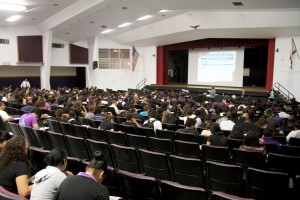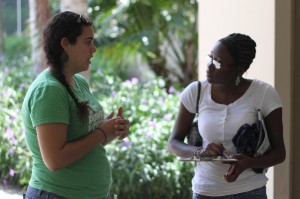At least in digital terms, Florida calmed down
today.
Allegations of fraud in the city of Racine during
the June 5 Wisconsin recall election have been
bubbling up among conservative Twitter users, while
most of the political Twittersphere has been consumed
with the campaign collision that finds both President
Barack Obama and former Massachusetts Gov. Mitt
Romney speaking on the economy in the battlefield
formerly known as Ohio.
We have some gems today in the digital divide —
charts and graphs from the Pew Center on the States,
anyone? — and we’ll have more on Twitter trends at
the close.
What We’ve Been Reading
“Voters
Without ID In Wisconsin,” (Report, 06/14, Pew
Center on the States)
“Rubio:
Florida voter purge not about Hispanics,” (Maggie
Haberman, 06/13, Politico)
“Pennsylvania Voter ID Law
Places Expiration Date on Democracy,” (Brentin
Mock, 06/14, The Nation)
“W&W
hired to defend State in Voter ID challenge,”
(Patrick Thornton, 06/14, MinnLawyer
Blog)
“Dred Scott
2.0 — The Voting Edition,” (Marcus Bright, 06/14,
Huffington Post BlackVoices)
“New
Hampshire Governor Faces Stark Choice on Student
Voting Rights,” (Dan Vicuna, 06/14, CampusVote
Project)
“Curious
Election Documents Found in Dumpster in Racine,
Sheriff’s Department Investigating,” (MacIver
News Service, 06/14, MacIver Institute)
Twitter Trends
The most notable trend on Twitter as of late is
the circulation of a Democratic Senatorial Campaign
Committee petition against what
Democrats call Republican voter suppression
tactics.
It’s one of many petitions — on both sides of the
proverbial political aisle — that seem to circulate
every few days. Our regular inputs on social media
search engine Topsy.com
always generate one of many digital petitions to
support or stop Florida Gov. Rick Scott’s voter
purge, which makes us wonder — do the politicians and
public figures at the heart of these petitions ever
even read them? Or is Twitter activism just a new
form of political inaction?
Most of our regular trend-setters are focused on
the Obama-Romney economic rumble in Ohio, so we’ll be
sure to let you know when the digerati are angry
about voting rights again.
For more of the latest voting rights, remember to
follow @WhoCanVote.







